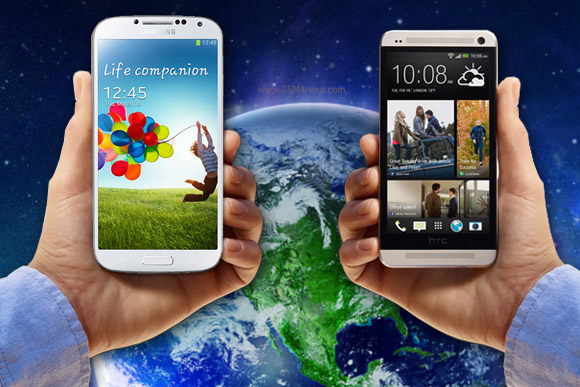If I had to use just one word, I’d say “branding”, and it’s one of the main reasons why the iPhone was successful, too. There are other factors that are helping the iPhone, though: first to revolutionize the smartphone market, belief that Apple makes great products, loyalty to Apple, coolness factor, etc. Samsung lacks many of these, though, which is why Galaxy S itself will never be as successful as the iPhone, not when they keep releasing them with poorer build materials, and poor design taste in both hardware and software. But even without those, they can be successful enough, if they take the time to build a strong brand.
Back to branding. Branding implies 2 other things: having the same brand every year, and putting a lot of marketing money behind it.
The first one matters because it gives people a known factor, a trusted factor. A brand, by definition, implies trust in it: “Hey they’ve been doing this for at least 3-4 iterations, and everyone loved it before, so I’ll probably get the next one myself”.
When you release a “new brand”, like HTC used to do all the time, and still does on some carriers, that implies risk for the customer, because they don’t know that brand, and that reduces the potential of buying it significantly. People hear their friends talking about the Galaxy S one year, then even more friends talking about the Galaxy S2 the next year, and eventually they end up buying the Galaxy S3 or Galaxy S4, because they’ve heard about it for so long, and heard good things about it. If HTC releases a Desire one year, then an Evo the next, then an HTC One X the next, most people wouldn’t have heard of those brands before, because they didn’t exist. So they don’t buy those. Thy buy the ones they’ve heard about for a long time.
But why is branding so important to people? Again, it comes back to trust. Most people don’t go and research a phone thoroughly to know everything about it. Most customers just buy on other people’s recommendations, whether that’s from friends, or from other people commenting about it online, or the media writing a lot about it, too. But the media rarely talks about unknown brands unless they’re extremely good and newsworthy. Otherwise, for the sake of views and traffic, they talk mainly about the brands everyone already knows.
The second part of branding, besides the “trust” factor, is the marketing power. Samsung and Apple spend a lot of money on good commercials, too. Commercials aren’t as effective as they used to be, but when most people keep seeing one commercial about one product, and after they’ve already heard before about that product from friends or others, it gets reinforced in their minds that it’s a good product, backed by a strong company that probably makes quality products, too. It capitalizes on the already strong word of mouth of that brand.
HTC and others like them, keep failing, because as I mentioned above, they keep changing their brands around, for one, and second, they are basically putting “less wood behind each arrow”, when they do that. As I said, marketing capitalizes on known brands, which makes that marketing very efficient. If you have to do marketing for unknown products, that’s a lot less efficient. That’s why HTC’s decision so far to release a brand for each carrier in US has been such a terrible one – especially when they had so little money left before. It only compounded on their money problem.
Of course, for a strong brand to work, you also need a pretty appealing and quality product, even if it’s not perfect in every way (although that certainly helps). But this is more like a pre-requisite to success. However it’s not going to win markets. What wins markets is strong branding, and building on that brand year after year, while getting more and more customers.
 TechDomino
TechDomino



